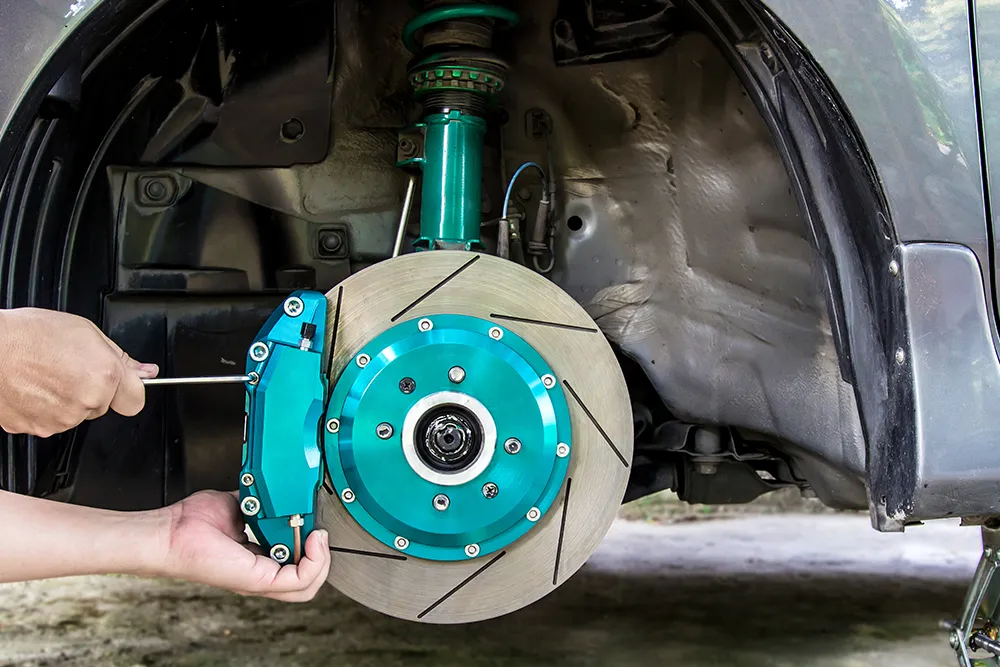When it comes to vehicle maintenance, one of the most crucial aspects to prioritize is brake inspections. Your vehicle’s brakes are vital to your safety on the road, so ensuring they are in optimal condition is non- negotiable. If you’re in Tempe, Arizona, and looking to get your brakes inspected, here is what you can expect during a brake inspection and what it involves:
Importance of Brake Inspections
Before delving into what a brake inspection entails, it’s essential to understand why brake inspections are so important. Your vehicle’s braking system is comprised of various components that undergo wear and tear over time. Regular inspections help identify any issues early on, preventing more significant problems down the line. Furthermore, ensuring your brakes are in top condition enhances your vehicle’s overall safety and performance.
Signs You Need a Brake Inspection
Knowing when to schedule a brake inspection is crucial. Look out for the following signs that indicate your brakes may need attention:
- Squealing or grinding noises when applying the brakes
- Vibrations or pulsations in the brake pedal
- Longer stopping distances
- Brake warning light on the dashboard
- Spongy or soft brake pedal
If you notice any of these signs, it’s advisable to schedule a brake inspection promptly at We-Fix-It Auto Repair to address any potential issues.
What to Expect During a Brake Inspection
When you bring your vehicle in for a brake inspection in Tempe, Arizona, here is what you can typically expect:
- Visual Inspection: The mechanic will begin with a visual inspection of the brake system, including the brake pads, rotors, calipers, and brake lines. They will look for signs of wear, damage, or corrosion.
- Measurement of Brake Pads and Rotors: The thickness of the brake pads and rotors will be measured to determine if they are within the manufacturer’s specifications. If they are too thin, they may need to be replaced.
- Brake Fluid Check: The mechanic will check the brake fluid level and quality. Low brake fluid or contaminated fluid can affect brake performance and indicate potential issues.
- Brake Component Lubrication: Lubrication of certain brake components may be necessary to ensure smooth operation and prevent premature wear.
- Test Drive: A test drive may be conducted to assess the overall performance of the brakes, including braking power, noise, and pedal feel.
- Recommendations: Based on the inspection findings, the mechanic will provide recommendations for any necessary repairs or replacements. This may include replacing brake pads, resurfacing or replacing rotors, or addressing any other issues identified.
Benefits of Regular Brake Inspections
Regular brake inspections offer several benefits, including:
- Enhanced safety on the road
- Prevention of costly repairs by addressing issues early
- Prolonged lifespan of brake components
- Improved braking performance and efficiency
By prioritizing regular brake inspections, you not only ensure your safety but also extend the longevity of your vehicle’s braking system.
Final Thoughts
Ensuring your vehicle’s brakes are in optimal condition is a responsibility that should not be overlooked. By understanding what to expect during a brake inspection and being proactive in addressing any issues, you can maintain a safe and reliable braking system. In Tempe, Arizona, entrust your brake inspections to a reputable auto repair shop like We-Fix-It Auto Repair to keep your vehicle operating smoothly and safely. Schedule a brake inspection today and drive with confidence knowing your brakes are in top-notch condition.
